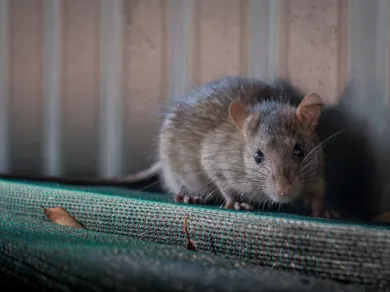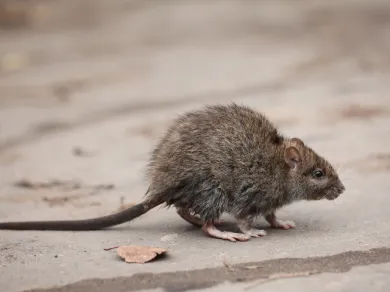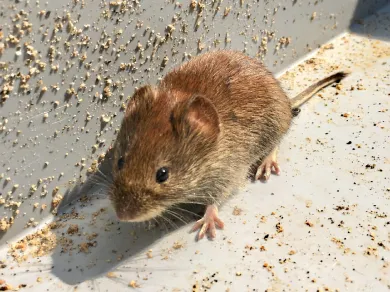Contact Us Today for Quote!
GET QUICK QUOTE
Rodent Control Experts
– Gold Coast and Tweed
Get rid of rodents from your home and business…
Rodent control is important to protect the health of your family and pets, and indeed protect your home!
Rodents are a major health hazard:
- They carry a range of parasites – fleas, ticks, lice and mice
- They can pass on a number of diseases – dysentery, leptospirosis and typhus fever
Rodent cause significant damage around the home:
- They are one of the major causes of house fires, as a result of chewing through electricals
- The spoil food with their urine and droppings
- They damage a range of materials through their gnawing
To effectively control rodents and prevent them coming back, it’s important to understand rodent behaviour and use the appropriate products.
Given the risks in using rodent baits around children, pets and native wildlife, it’s also important to know how to carry out a safe rodent control program.

Roof Rat

Sewer Rat

House Mouse
Professional rodent treatments from Richards Pest Control
We inspect before we treat
Before we start a rodent treatment, we carry out a thorough inspection to make sure we can identify the rodent present, understand the size and nature of the problem, and identify potential nesting sites and entry points into buildings.
Designing a rodent control program
We use the information from our inspection to design a suitable rodent treatment. However, we also have to consider whether there are any children or pets in the house, as this can influence the choice of product and placements.
Our rodent treatments
We use a combination of rodent baits and rodent traps in our treatments, depending on the situation. We always place our baits in lockable bait stations (and generally out of the reach of prying hands and paws) to prevent accidental contact from children and pets.
Mice treatments
Mice are generally easier to control. They are generally very inquisitive and quickly fed on rodent bait. Unless it’s a severe infestation, a mouse problem is generally controlled within a week. However, it’s important to carry out the necessary rodent proofing and pest prevention measures to prevent the problem re-occurring.
Rat treatments
Rats can be more difficult to control as they tend to be frightened of new things (such as baits appearing in their territory). Consequently, it can take several days before they even start feeding on the bait. As such, rat problems can take up to 2 weeks to be eliminated. In cases of severe rat problems several visits may be required to top up the bait in the bait stations.
How rodent baits work
Rodent baits contain blood anti-coagulants. After eating the bait, it takes several days for the anti-coagulant to have an effect – the rodents gradually get sluggish before falling unconscious, with the rodent typically dying in 4-7 days. The rodents only need to eat a few grams of bait to get a lethal does but will continue to eat until they die.
Rodenticide safety
Rodenticides can have the same effect on other mammals, as they do on rodents, so it’s important that children, dogs and other pets do not eat the bait. We always place the rodent baits in lockable bait stations and place them out of the reach of children and pets to prevent easy access.
The baits we use also contain a bittering agent to make the bait distasteful if a dog or child puts in in their mouth. Generally, cats won’t eat the bait as they are carnivores, and the baits are made of grain.
Rodents that have eaten rodent bait are also a safety concern, if dogs or cats eat them. This is why it is important to pick up any dead rodents around the property as soon as they are spotted (use gloves, place them in a plastic bag, seal and place in the bin).
Although a child or dog would have to eat a lot of bait for it to have a lethal effect, if you suspect they may have accidentally ingested some bait or eaten a treated rodent (in the case of dogs), it is important to take them to the doctor or vet immediately so they can be assessed and given the necessary treatment (if required).
Bait and dead rodents also pose a safety concern to native wildlife. For example, possums will also die if they eat the bait. It’s important to remember that harming or killing native wildlife can result in significant penalties, which is another reason using a pest professional rather than just throwing bait into the roof void is a good idea.
How to rodent proof your home…
In most cases rodents will live outside, coming inside to find food. However, if they can find a safe, warm place inside they are more than happy to set up home (especially in the cooler months).
To help prevent rodents entering your, there are various steps you can take to make your home less attractive to rodents and preventing them entering the building:
What are the signs of a rodent problem?
Rodents are nocturnal, so you are unlikely to see a rat or mouse, unless you have a major infestation. As such, it pays to know the signs of rodent activity…
